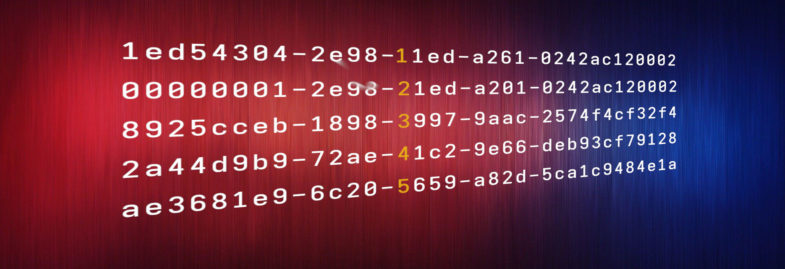
UUIDs, Universal Unique Identifiers, are a specific form of identifier designed to be unique even when generated on multiple machines. Compared to autoincremented sequential identifiers commonly used in relational databases, generating does not require centralized storage of the current state, I.e., the identifiers that have already been allocated. This is useful when a centralized system would pose a performance bottleneck or a single point of failure. UUIDs are designed to be able to support very high allocation rates, up to 10 million per second per machine.
(more…)
